|
A Virtual Walk Through Jacksonville History
Stop 27: Duncan – Hanna House
Across 1st Street from the Britt Gardens is the Classical Revival style home that we know as the Judge Hanna House. However, Hanna was not the first Jackson County judge to occupy the home. This 285 South 1st Street residence was home to local judges for over 100 years.
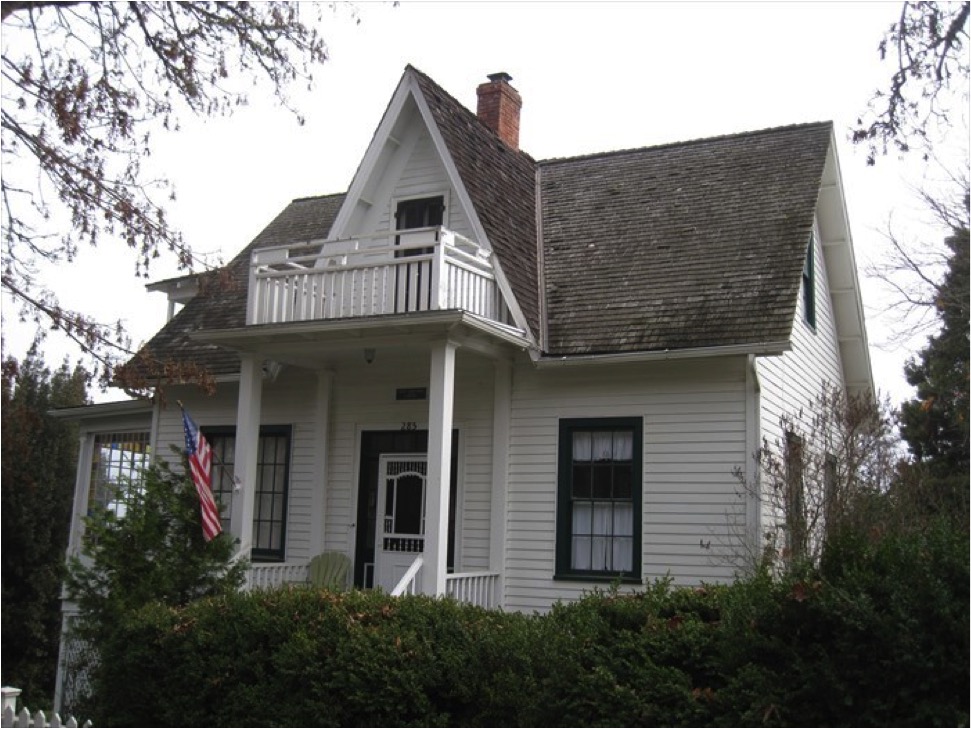 Judge Hanna House. Photo Source: Waymarking. Judge Hanna House. Photo Source: Waymarking.
In this case, however, the judges were “Johnny-come-latelies” to the site. The first known occupants of the property were Robert and Minerva Armstrong. (See Stop #17.) Shortly after arriving in Jacksonville in October 1852, Robert built a “pole cabin” at this location. And on February 24, 1853, Cornelius Jasper Armstrong, the Armstrong’s third child, was born there—possibly the first White child born in Jacksonville.
In the spring of 1853, the Armstrongs traded the pole cabin and a hack to a Mr. Rogers in exchange for a donation land claim about 2 miles north of Jacksonville.
| The next known occupants of the property were Methodist Episcopal minister, Reverend T.F. Royal and his family. It is not known if Royal was the owner of the property when Legrand J.C. Duncan purchased the site and a “small unsubstantial wood frame building” in 1858. |
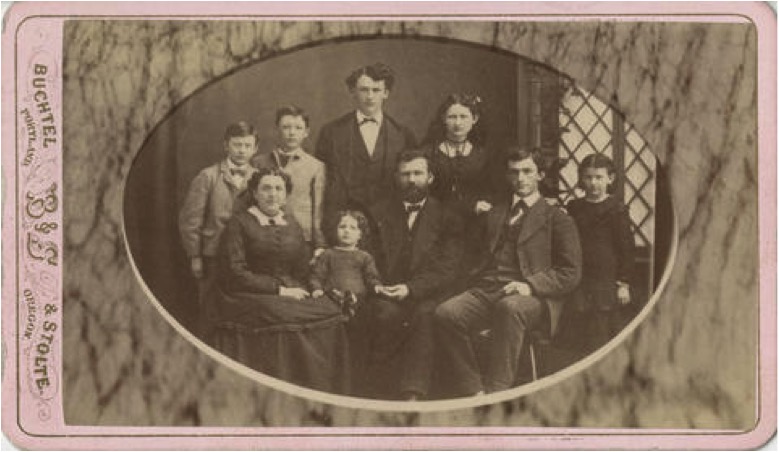 Reverend Thomas Fletcher Royal and family. Reverend Thomas Fletcher Royal and family.
Photo Source: OHS ba001077 |
It was another 10 years before Duncan got around to building the existing structure. The Jacksonville Reveille Weekly announced in 1868 that “Judge Duncan is building a new residence at his corner of Pine and First.”
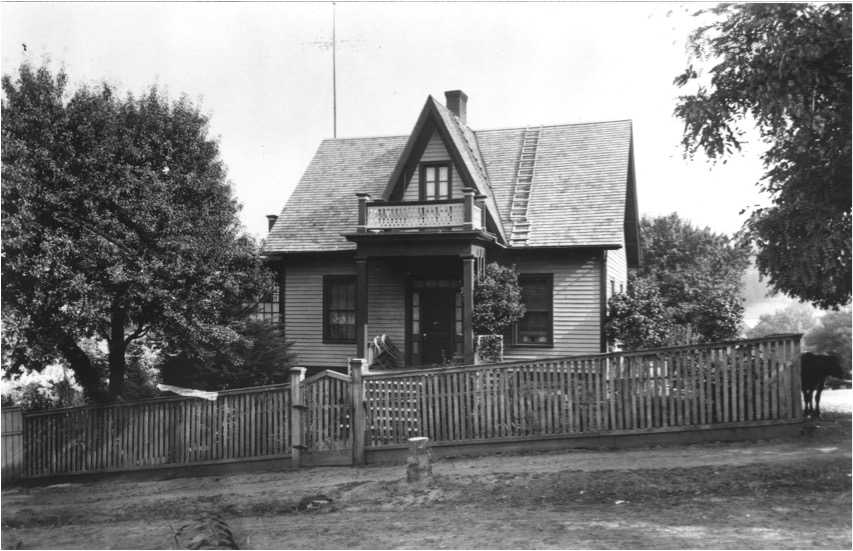 Duncan -Hanna House. Photo Source: SOHS #46061 Duncan -Hanna House. Photo Source: SOHS #46061
Probably the most dominant feature of this 1 ½ story clapboard house is its siting. The steep drop of the hillside provides an unobstructed view of Jacksonville and the Rogue Valley while creating an irregular arrangement of rooms on the first floor and basement levels. Neither the architect nor builder are known.
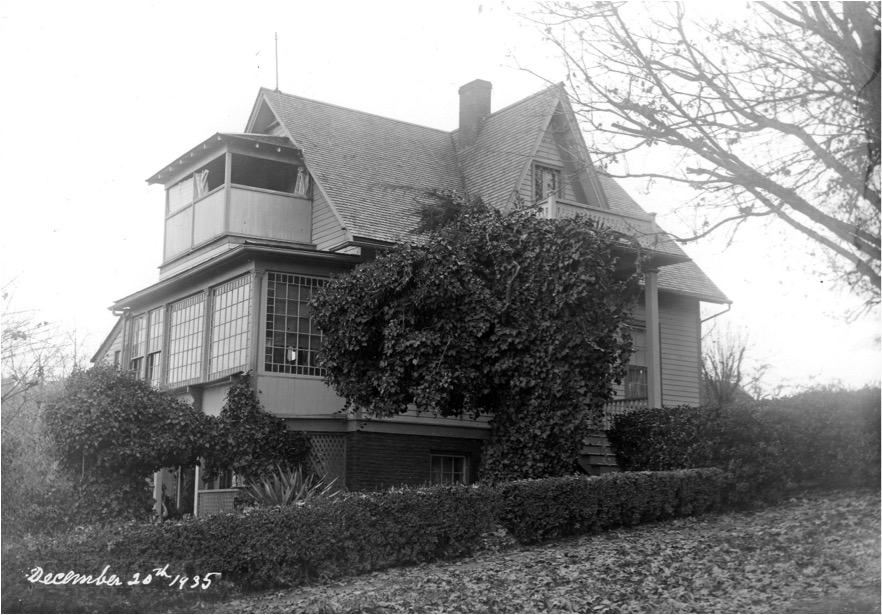 Duncan-Hanna House, 1935. Photo Source: SOHS 9642 Duncan-Hanna House, 1935. Photo Source: SOHS 9642
| Like many others, a 31-year-old Legrand J.C. Duncan had come west in 1849 in search of gold. With luck eluding him and the effort undermining his health, he staked a donation land claim on Bear Creek in 1851, about 12 mile southeast of Jacksonville. After gold was discovered in Rich Gulch, Duncan planted potatoes. The land claim required him to farm his acreage, and he anticipated that at some point potatoes would be as valuable as gold. In 1857 Duncan became a member of the convention that drafted Oregon’s constitution in preparation for statehood. That same year he married Mrs. Permelia Thompson, a widow from New York. |
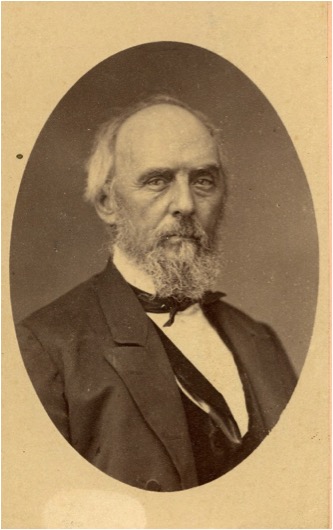 L.J.C. Duncan. Photo Source: SOHS #22837A L.J.C. Duncan. Photo Source: SOHS #22837A |
A year later Duncan was elected sheriff of Jackson County at which point he purchased this Jacksonville property. In 1866 he was elected County Judge. He declined a second term in 1870, but when his successor died within the year, he accepted the Governor’s appointment to fill the vacancy. Although no longer holding public office, Duncan continued to serve as a jury member until 1878 when his occupation was listed as “gentleman of leisure following the pursuit of gardening.”
In 1886, Duncan died of typhoid pneumonia at age 68. About that time, Hiero K. Hanna, for whom the house is now named, purchased the Duncans’ house.
Both Hiero and his son Herbert were venerable figures who occupied the house for many years. Born in New York state in 1832, Hiero Hanna had joined the steady stream of emigrants heading west in 1850. He mined for almost 20 years in California and Oregon while using spare time to study law.
| Miners often disagreed over mining claims, and Hiero acted as an advocate in disagreements. He became identified with politics, and although he had not yet completed his study, he was elected justice of the peace for the Waldo district in 1870. When the first judicial district was formed in 1872, he was chosen as district attorney for the region comprising the present counties of Josephine, Jackson, Klamath and Lake. Only then did he conclude his formal study of law and admitted to the bar. He was soon recognized as one of the best legal minds in the state. He served as district attorney from 1870 to 1872, was again elected to the office in 1874, re-elected in 1876, and served until July 1878. When the law was passed making a separate supreme court in 1878, he was appointed to the bench by the governor. |
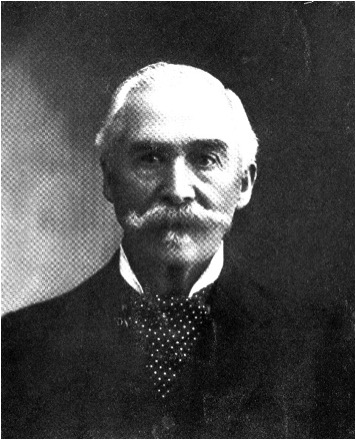
Hiero K. Hanna Photo Source: SOHS# 5734
|
By 1874 Hanna had also relocated to Jacksonville where he established a private law practice. Subsequently he served as city attorney for Jacksonville, the county seat. In 1880 he was elected circuit judge, but after two years’ service he resigned because of the meagerness of the salary and resumed his private practice. In 1884 he was appointed again circuit court judge and in the mid-1880s was a Trustee of the city. Only when Hanna was well established in Jacksonville did he acquire this residence.
In June 1892 he was again elected circuit judge of the first district for six years, and in 1898 he was re-elected for the same length of time. He served until 1910, the year he retired. He retired in January; in July he was dead. He was 78 years old.
Hanna’s second son Herbert by his third marriage also pursued an active legislative and political career. For several terms Herbert Hanna served as Jackson County circuit court judge. Following the death of his father in 1910, Herbert and his wife, Leona Ulrich, continued to reside in the Hanna House for over 50 years, celebrating their golden wedding anniversary in 1962.
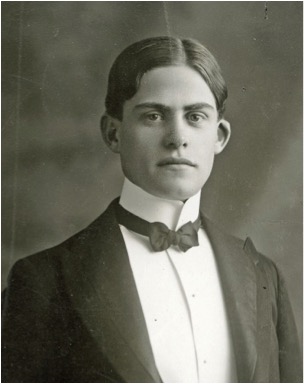 Herbert Hanna. Herbert Hanna.
Photo Source: SOHS# 23385. |
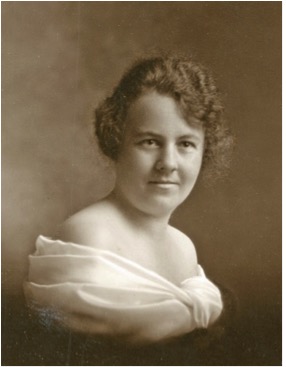 Leona Ulrich Hanna. Leona Ulrich Hanna.
Photo Source: SOHS #4529. |
Sources Cited
Gail E.H. Evans, Jacksonville Historical Survey, 1980. Armstrong family letters.
“Judge L.J.C. Duncan,” The Table Rock Sentinel, April 1984.
“The Hanna Story,” The Table Rock Sentinel, April 1987.
|